The Ongoing Protests at Palgongsan: Everything You Need to Know
Keeping Up to Date on the Local Dispute
February 9, 2023
“We are the owners of Palgong Mountain!” The assertive text on the banner attracted our eyes to the center of the action. A huge crowd gathered at the Pagunjae three-way intersection on January 13th, raising their voices to oppose the transition of Palgongsan into a national park.
The mountain, one of the key spots for domestic tourism in Daegu, is also home to the well-known and historic Donghwasa Temple, a sacred place for Korean Buddhism since the Silla dynasty. Antiquated traces of this monastery can be found almost everywhere around the landmark, attracting many visitors throughout the year. Not only does its historic value appeal to travelers, but its beautiful scenery and fresh air make it a perfect destination for hikers and tourists.
Palgongsan was designated as a provincial park in the 1980s, but the issue regarding its management became murky as the responsibility divided between the two regions of Daegu and Gyeongbuk. This separation was eventually deemed inefficient and, ever since 2012, numerous attempts promoting Palgongsan as a national park surfaced in local news. The most recent proposal first began in 2021, but the promotion process adjourned until now due to the severe opposition from landowners and residents around the area.
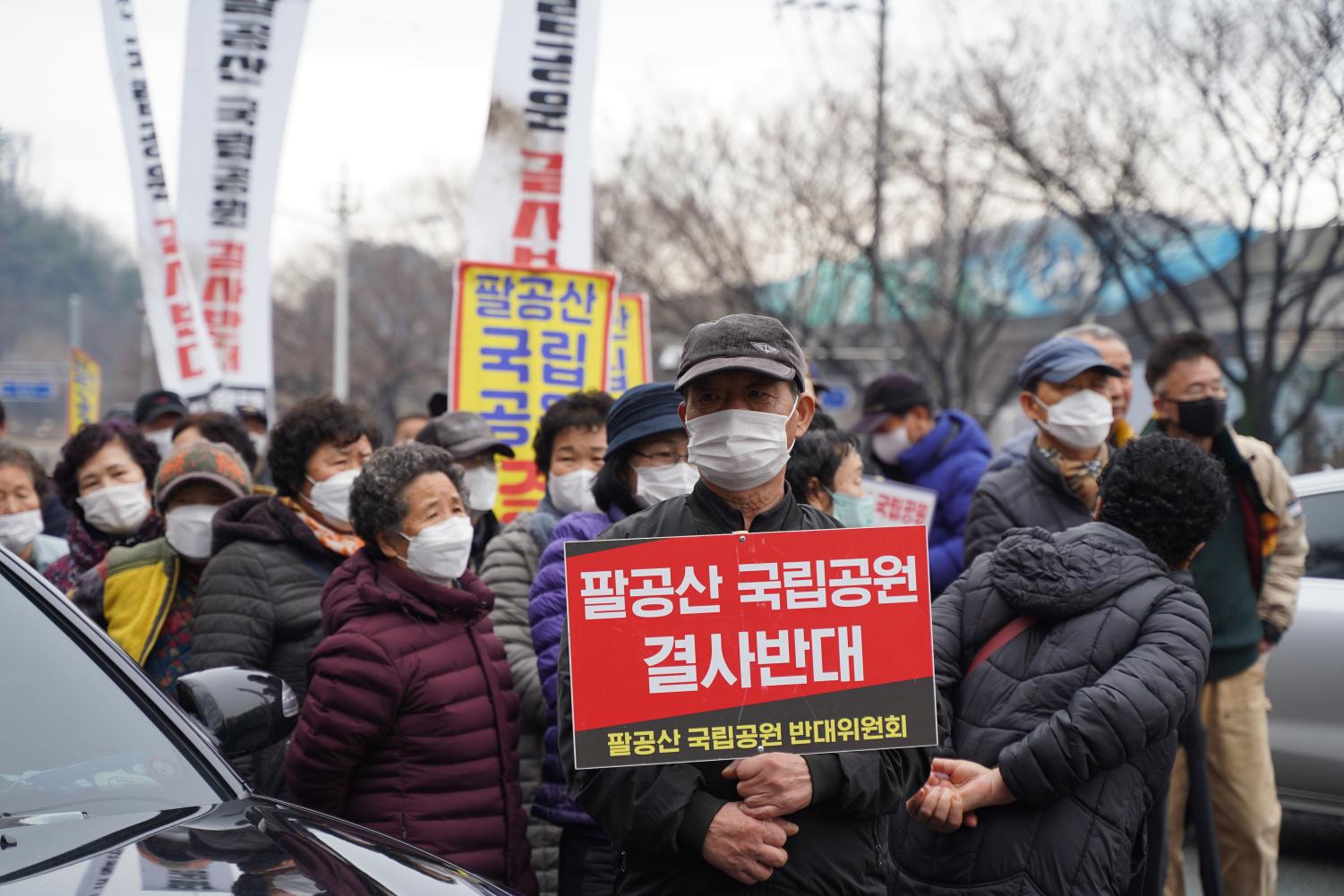
As the conflict with the Ministry of Environment and the City Council reached its peak, protesters – mostly those from the Anti-Palgong Mountain National Park Committee – walked the entire 12 km distance across Gongsan Tunnel, Baekan Three-way Intersection, and the Daegu Safety Theme Park as an act of prominent defiance.
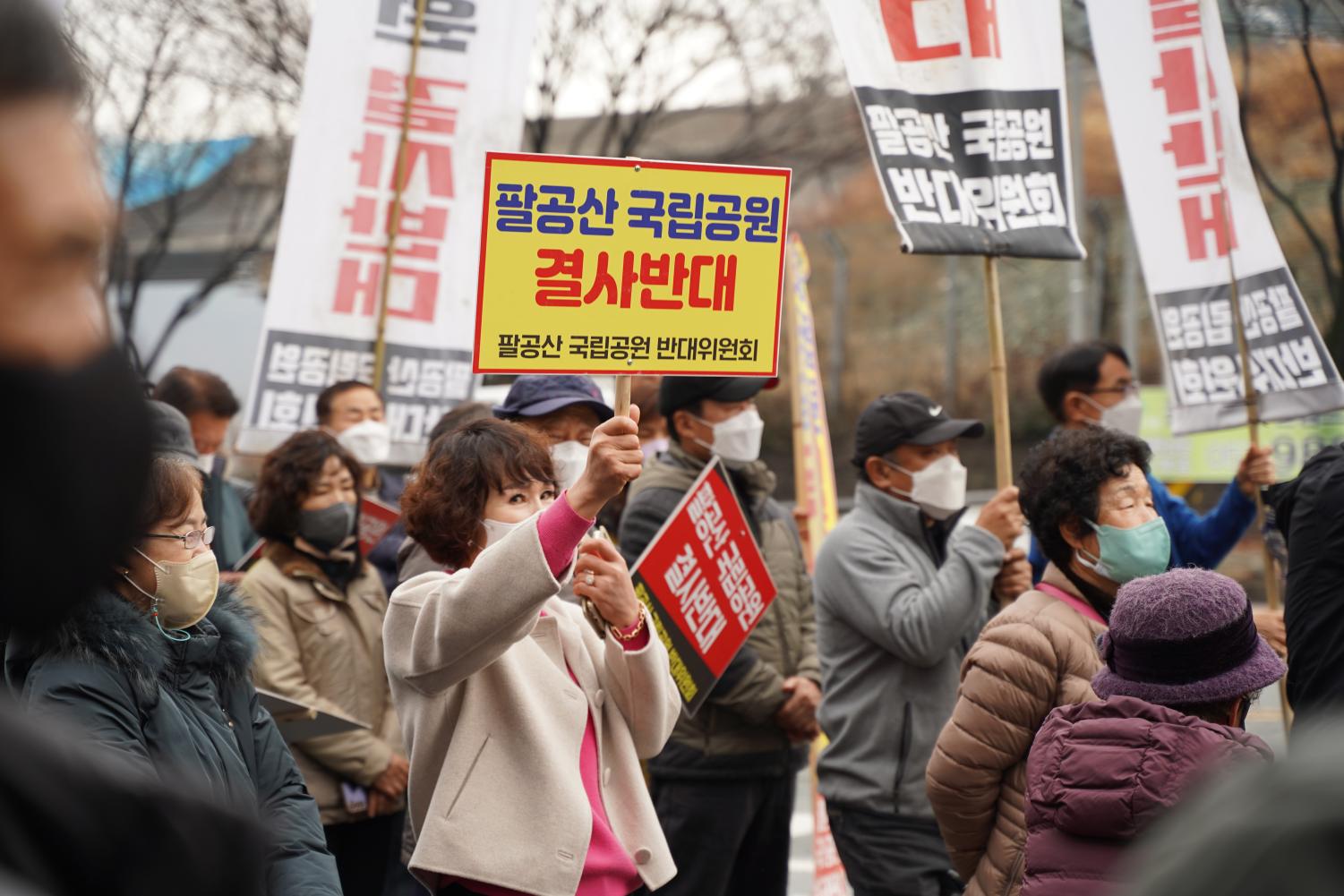
Seung Duk Choi, one of the chairmen of the committee, explained, “As of right now, we are not opposed to designate national parks. But to create a reservation, we have to minimize the damage to our local people.” The committee’s general rhetoric, represented by Mr. Choi, follows the consensus that as long as the proposed conditions are met, there are no qualms with the promotion itself.
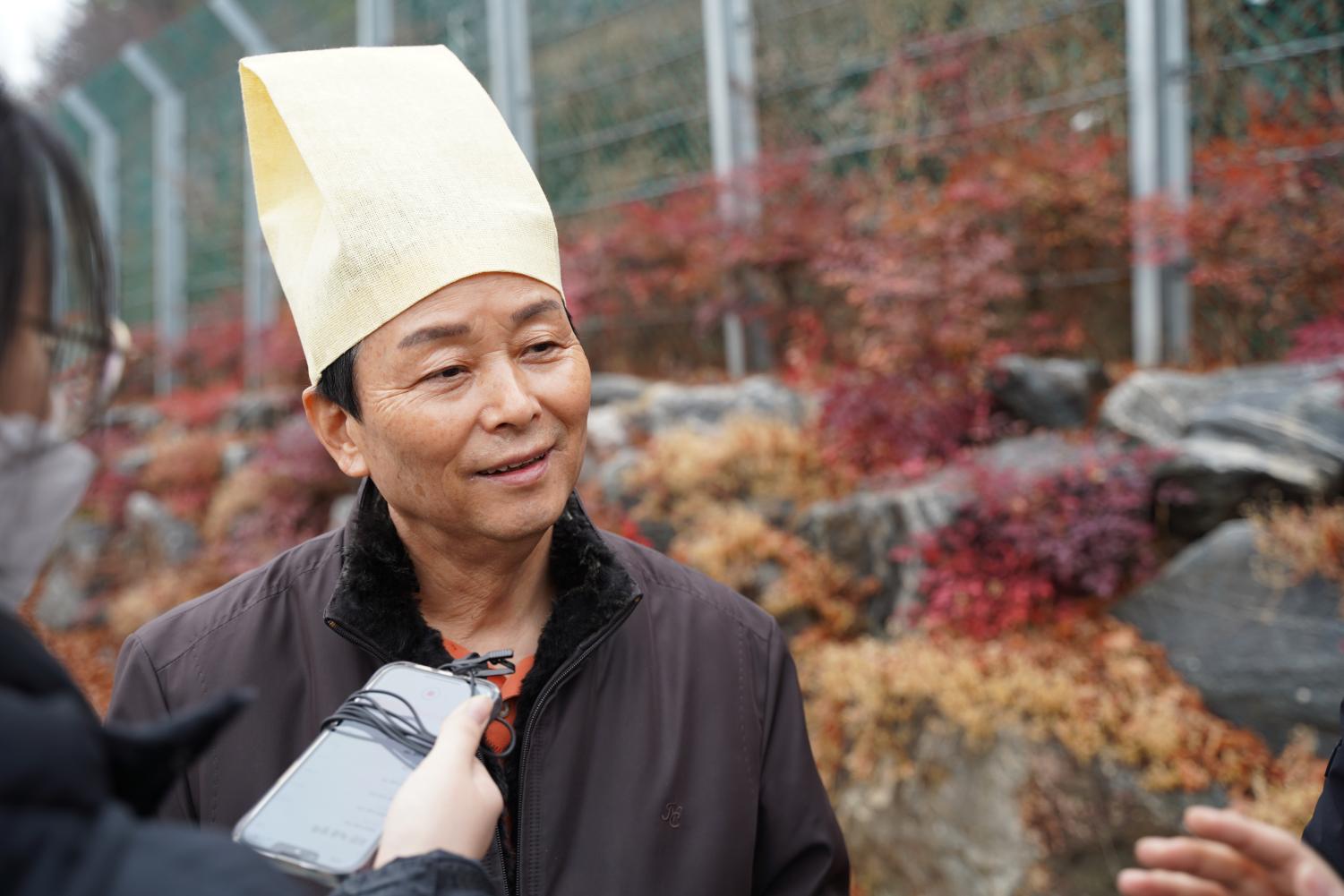
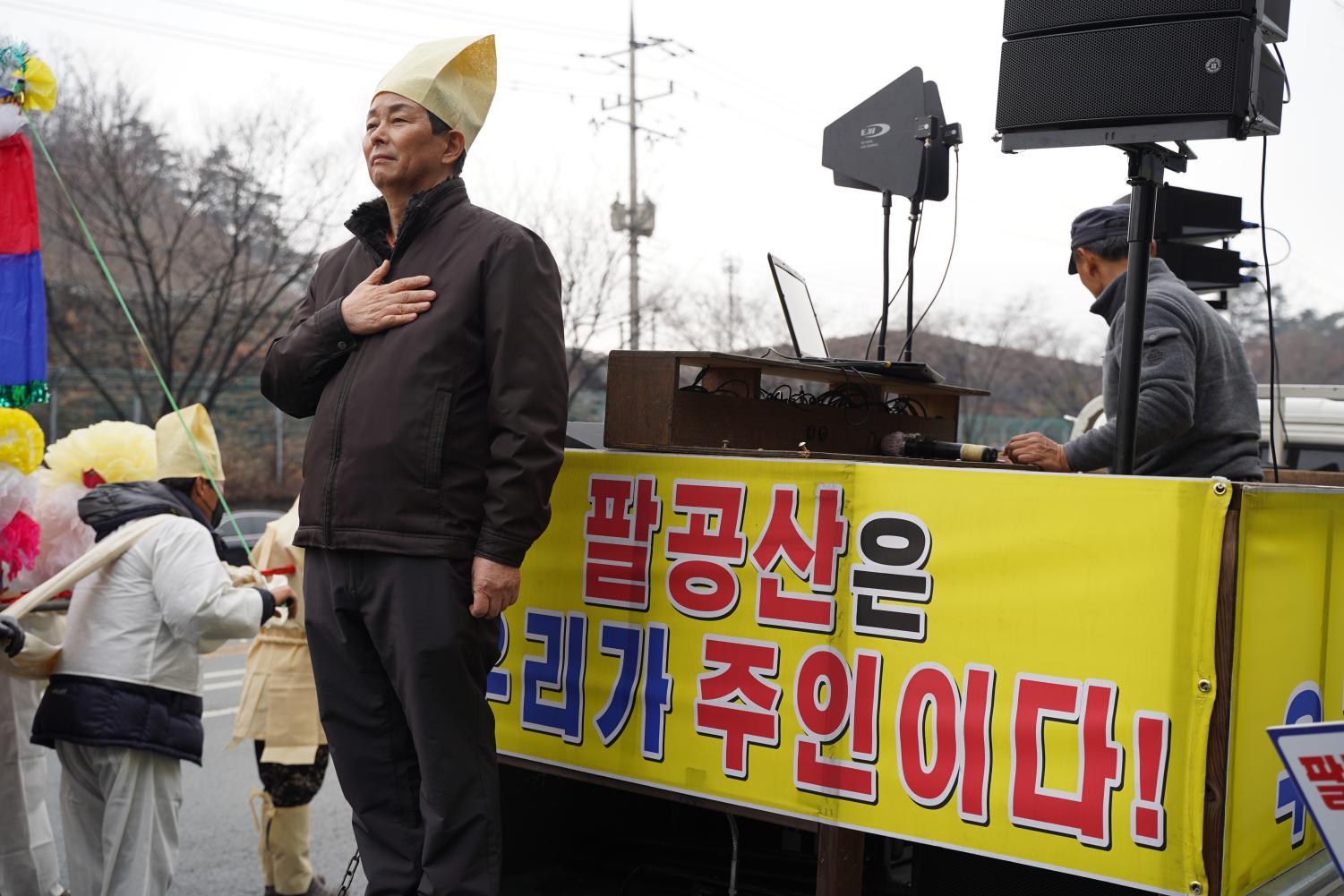
The opposition’s main arguments were delineated in an official document sent to the Daegu mayor. The proposed conditions concentrated on the property rights of private land near the mountain region, alongside other requests for road construction and the revitalization of the local economy.
The opposition claimed that ever since Palgong Mountain was designated as a provincial park, the landowner’s rights have been severely restricted, and the promotion has only exacerbated the tension. As a compromise, the protesters solicited that the bound lands be released or bought. Many voices also requested for allowance of ample parking space and an agricultural produce market.
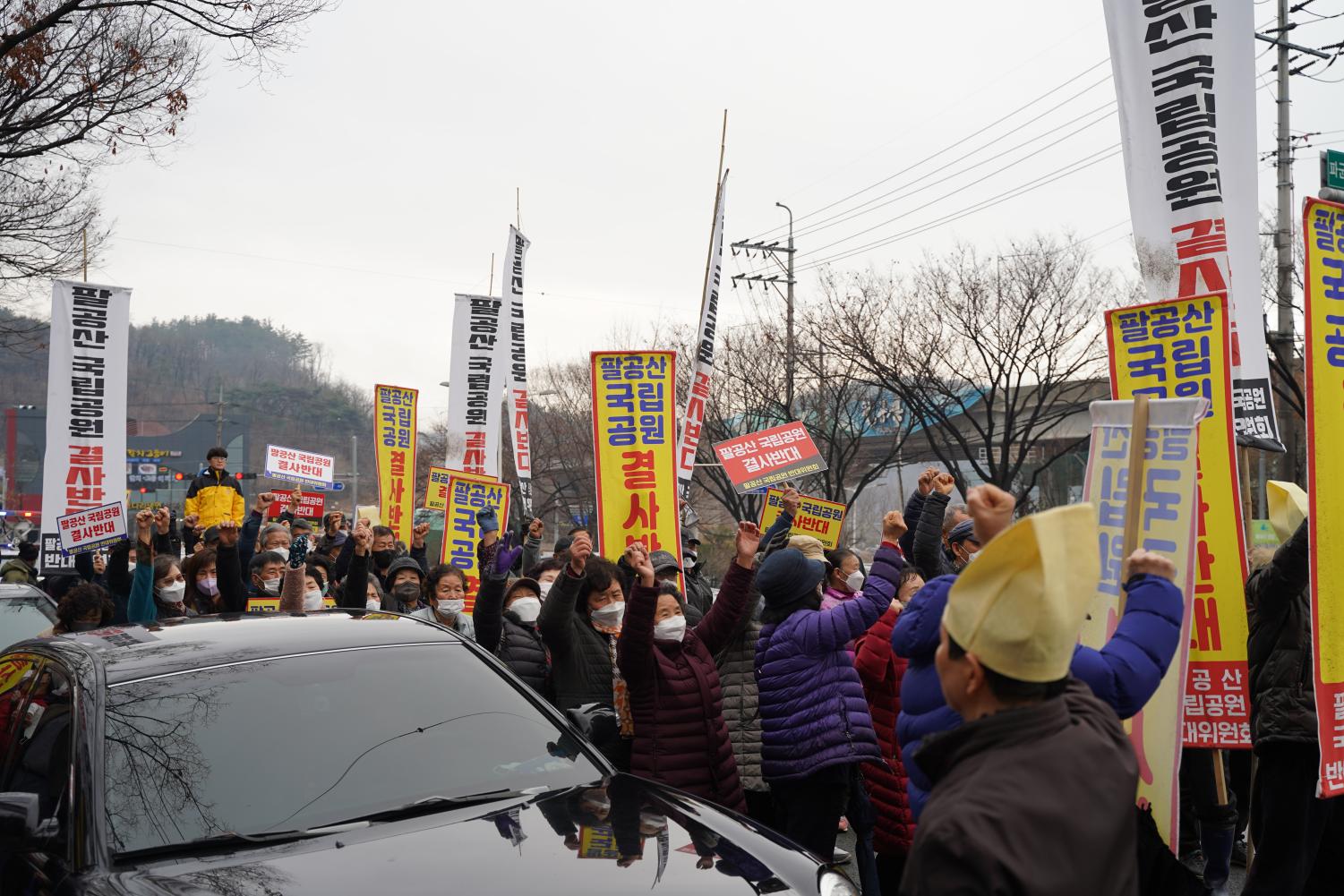
Mr. Choi especially emphasized the importance of ensuring an efficient traffic system. He claimed, “ [If there are no sufficient roads] the Palgong Mountain visitors are just stuck there. People get annoyed, and they won’t come here anymore. Why would they, if there are no infrastructures?”
On the other hand, those who support this change have pointed out the inefficiency of the park sparked by the division of ownership of the mountain between two management entities. With the promotion into a national park, this issue would be solved, allowing for better governance and conservation of Palgongsan.
Supporters behind this change argued that promoting Palgong Mountain contributes to the restoration of local pride, and establishes regional identity overall. Financially, about 10 billion Won per year spent by the Daegu and North Gyeongsang Province can be saved; instead of receiving direct financial support from the government, local authorities can gain full control and flexibility over regional projects.
The supporters also emphasize that the local economy will produce an upward surge with the increased brand value that might follow. The creation of quality jobs, presenting a vision to younger locals, seems to be a promising argument persuading many.
According to Dong-gu officials, the preliminary briefing session on the promotion of Palgongsan National Park didn’t fall through due to the strong resistance from Daegu residents. However, the briefing session for the designation of the National Park was rescheduled from the 30th of January and held on the 6th of February.
At this meeting, the Ministry of Environment and the Daegu Metropolitan Government promised that they will actively reflect the opinions of local residents to facilitate a smooth transition, also taking into consideration of the aforementioned road expansion.
With both sides adamant for their voices to be heard, the situation of elevating Palgong Mountain’s status as a national park remains a touchy subject for many. On the upside, as the situation attracts more attention, it’s possible that locals become more eager than ever to reach the negotiation table. Despite the conflicting stances, however, both sides hope to reach a win-win compromise in the near future.



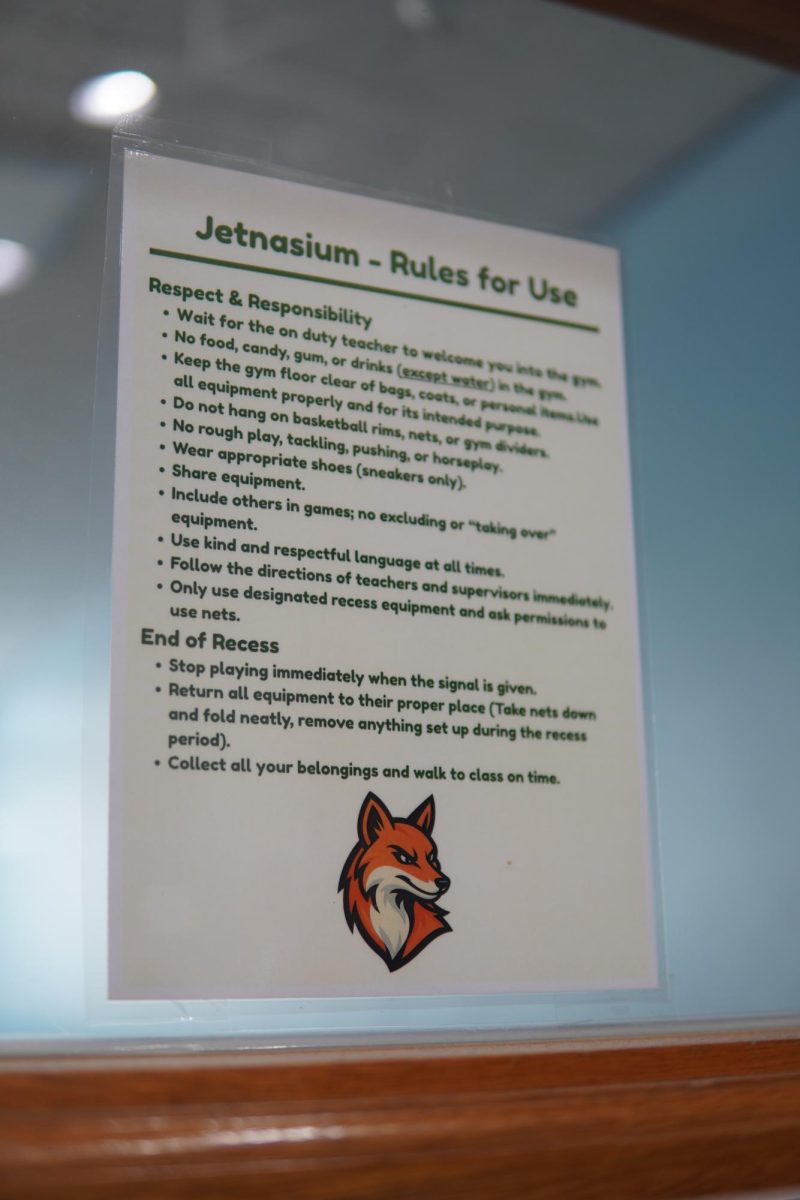

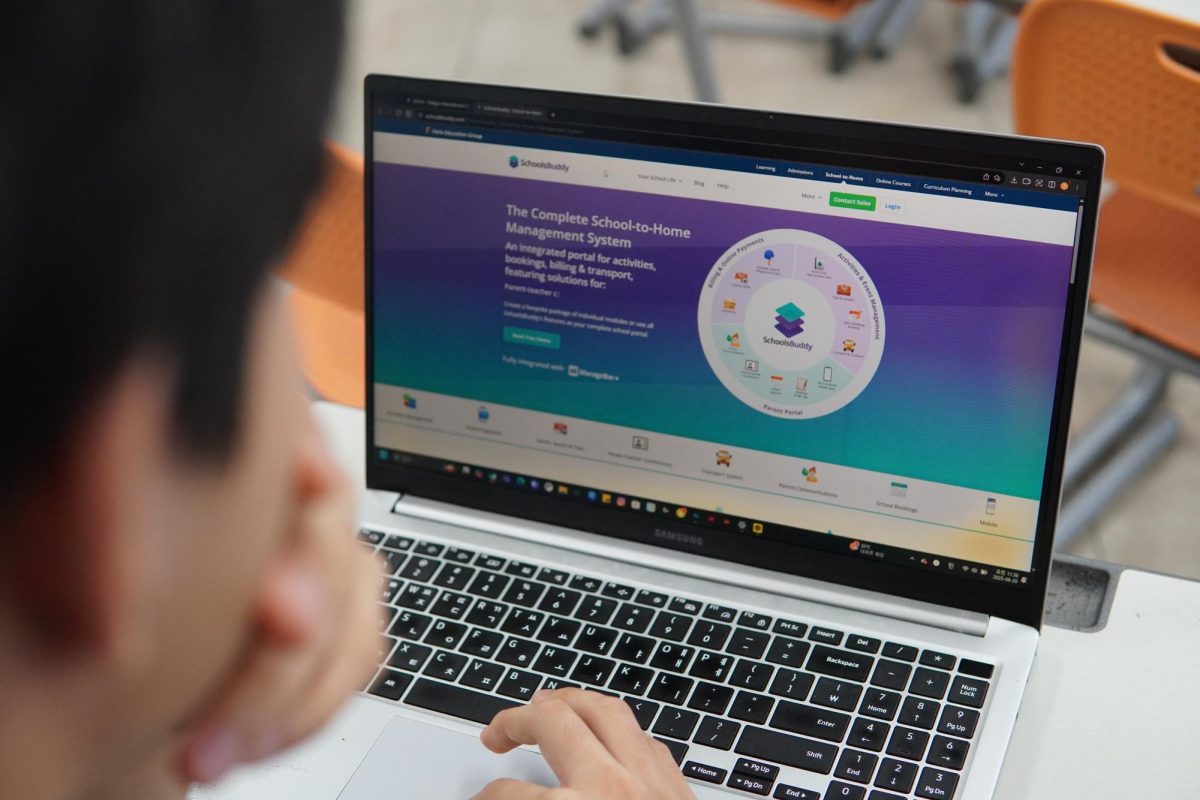
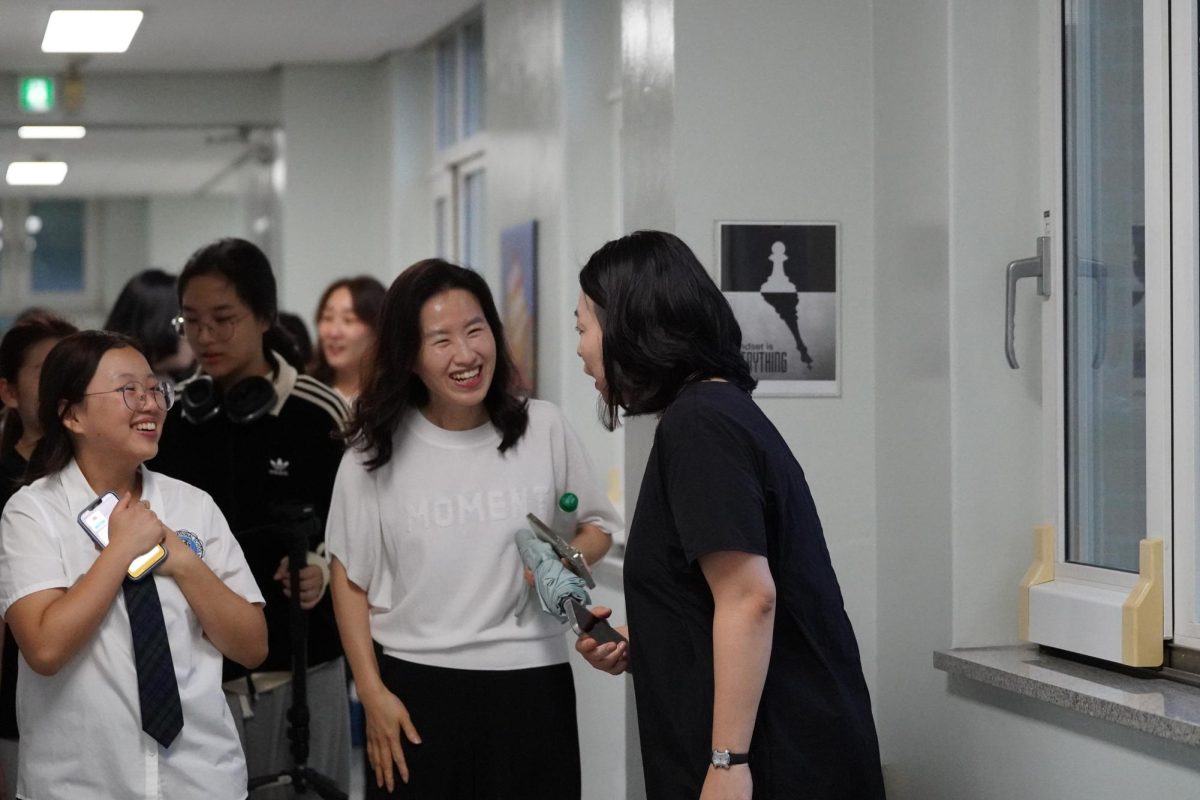








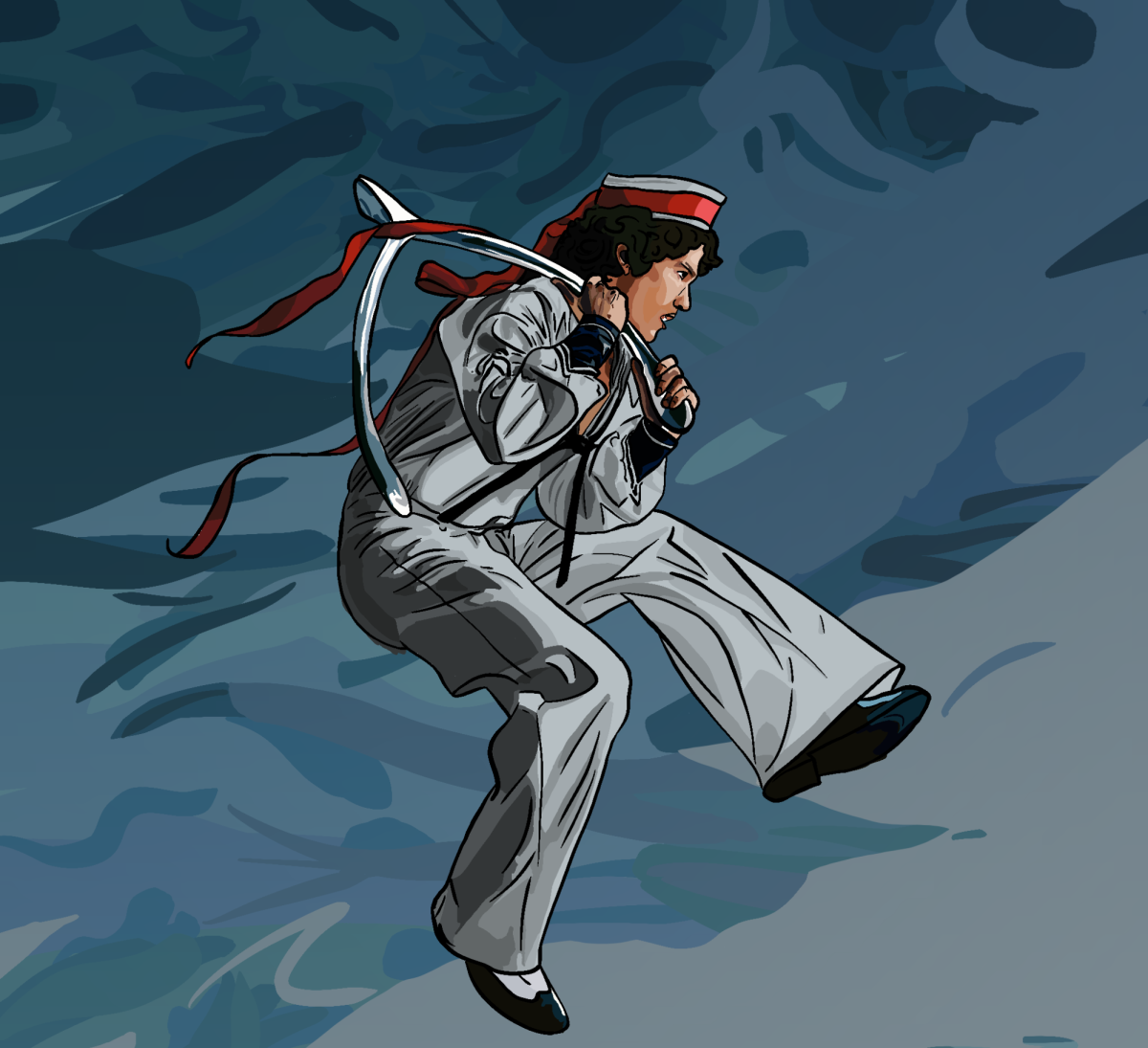

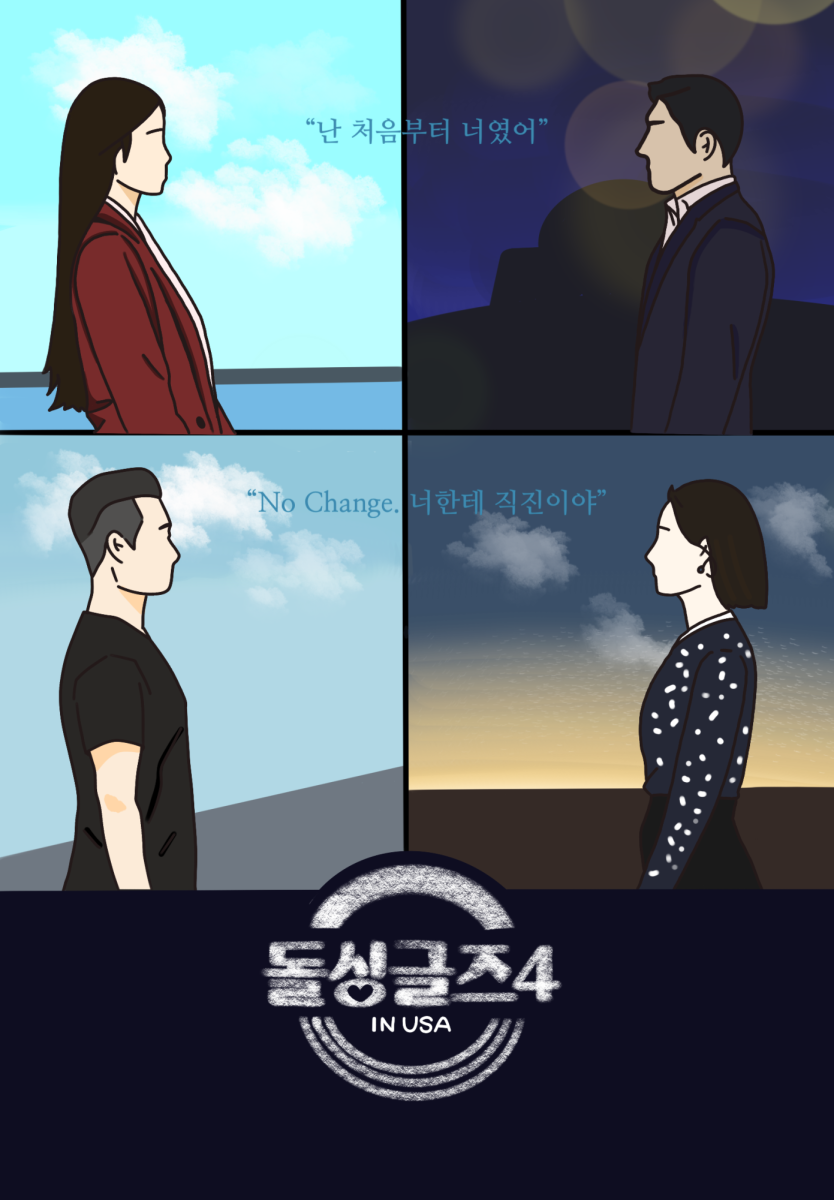















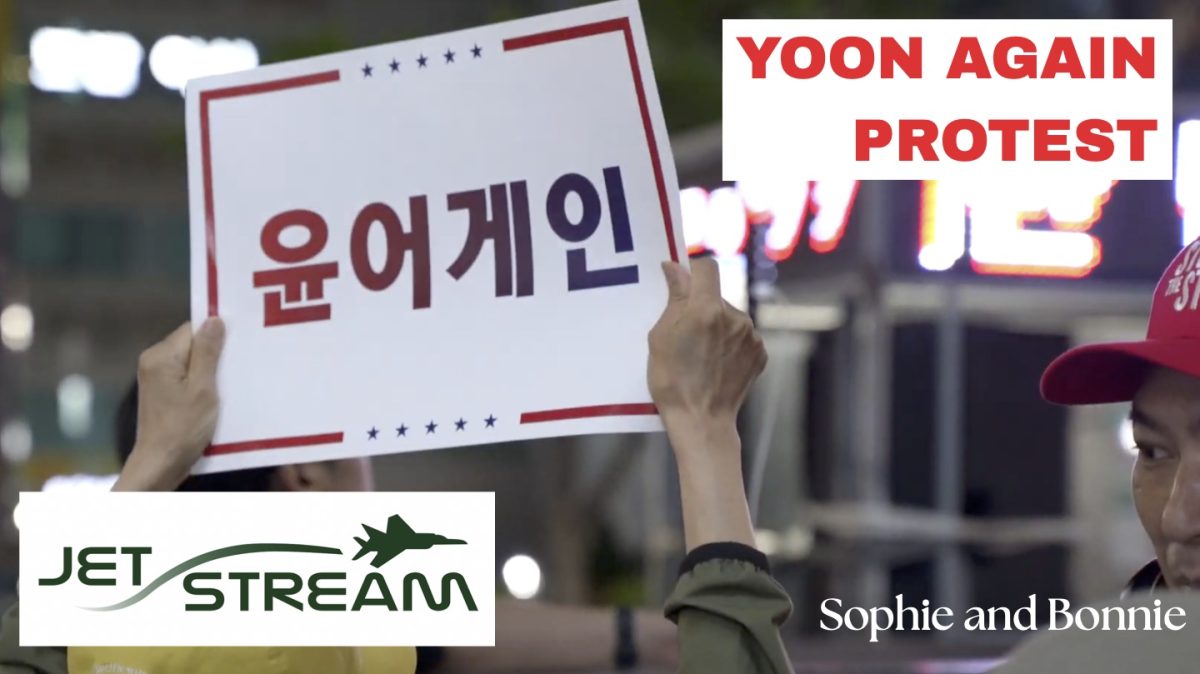




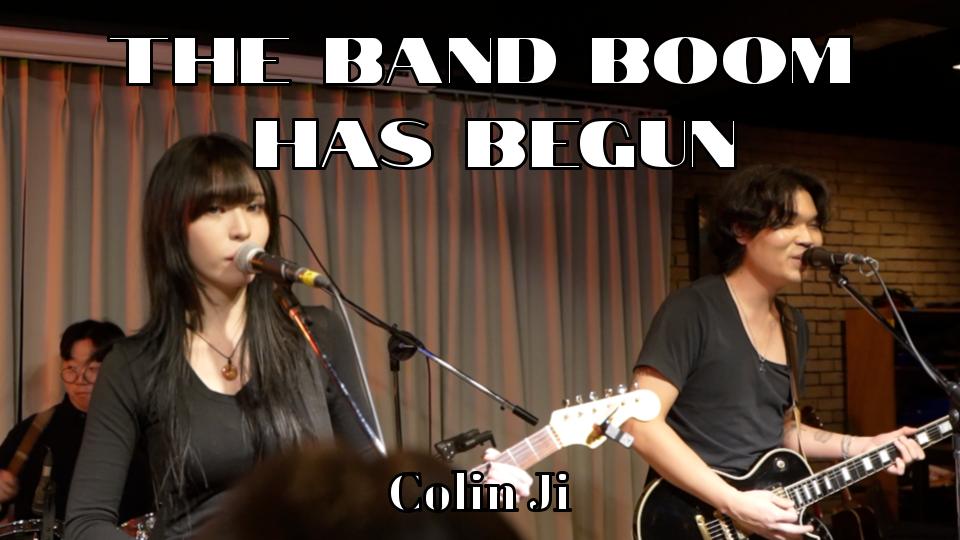
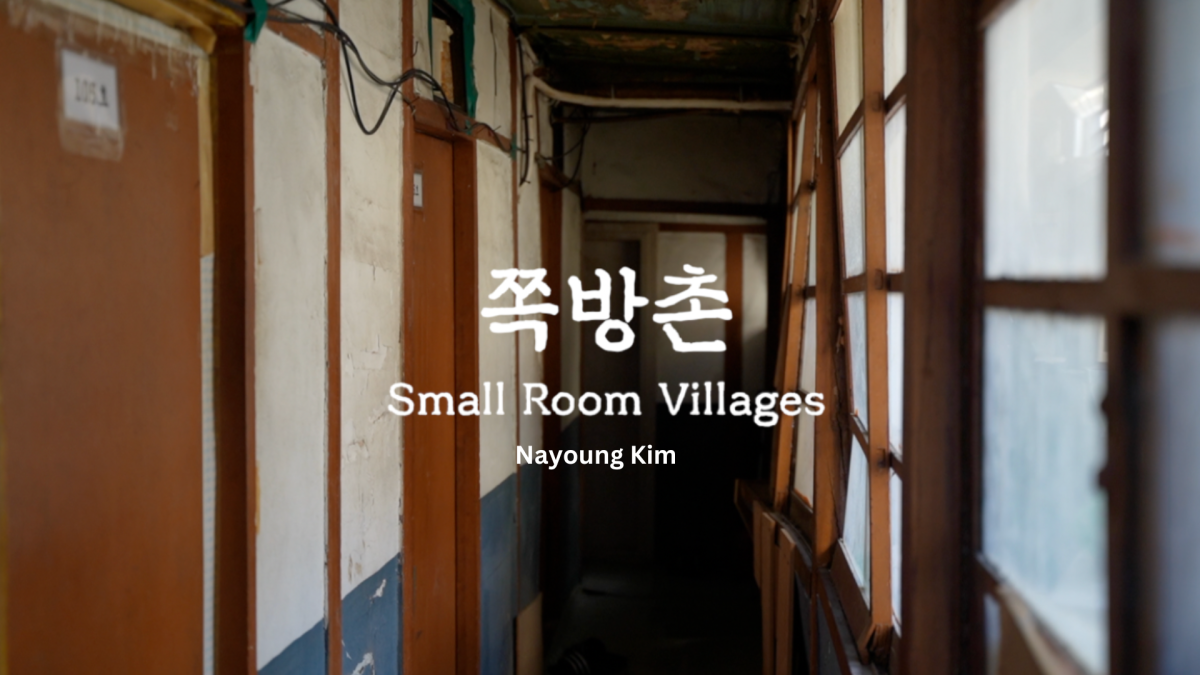







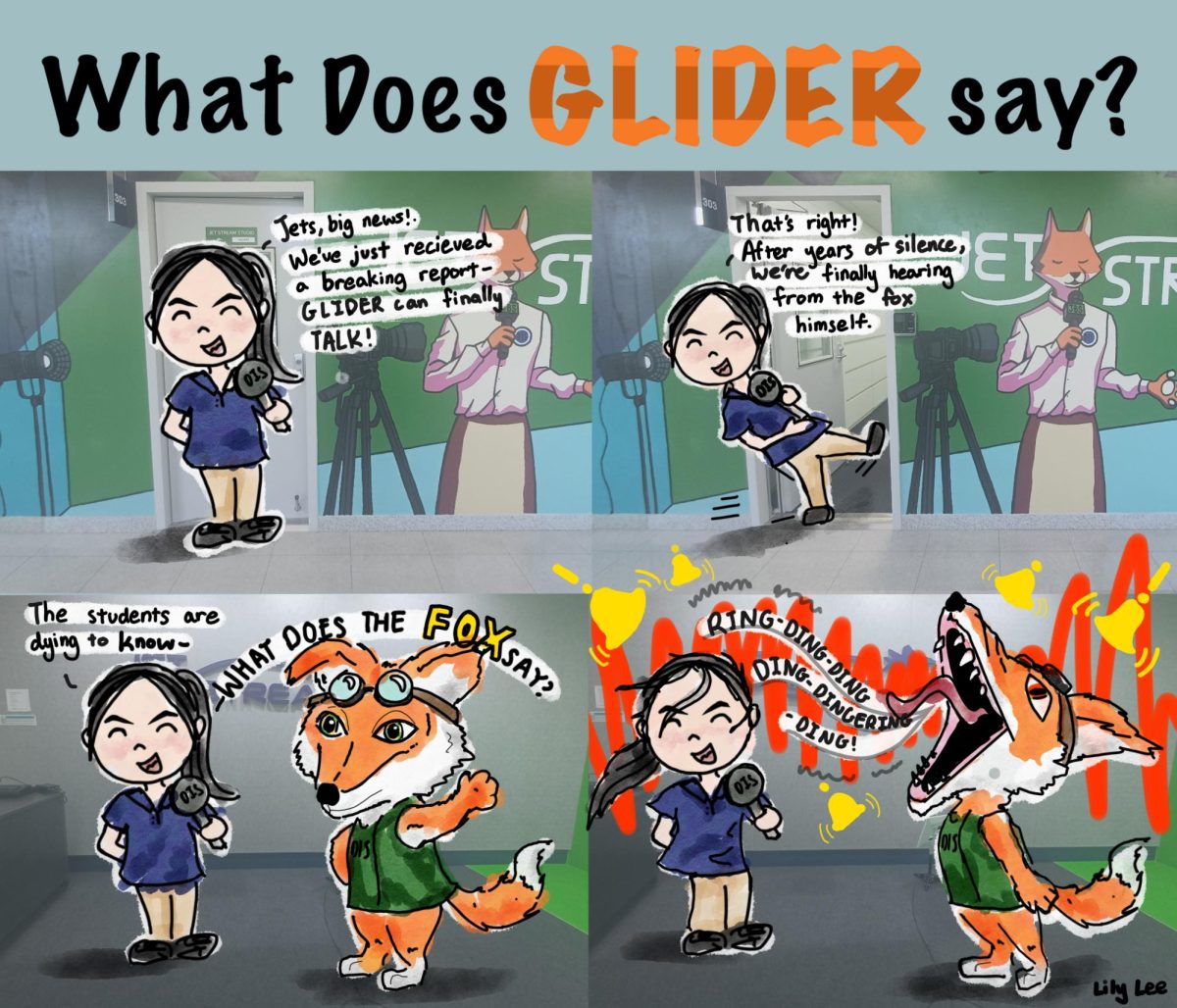


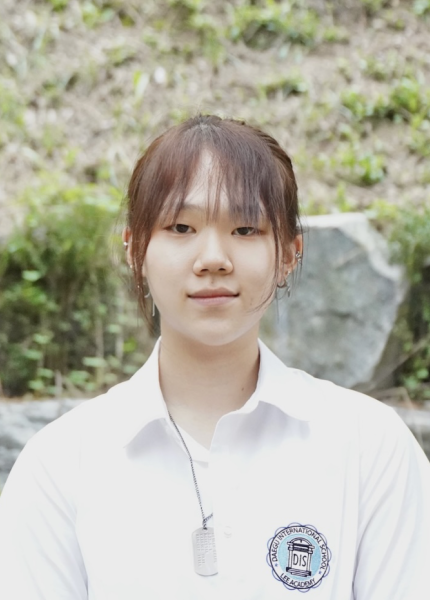


Ms. Morissettte • Mar 4, 2023 at 2:13 am
Love this focus on local journalism! Your article taught me so much and I appreciate learning more about the signs I see posted in different places. We’ll be using this article in our upcoming reading unit. Great work!!
Betty • Feb 16, 2023 at 6:30 pm
I saw the banner on my way coming to school and wondered what it was about—now I understand the situation much better 🙂 Thank you Elizabeth and Jane!
anna • Feb 9, 2023 at 6:26 pm
wow!! nice photos